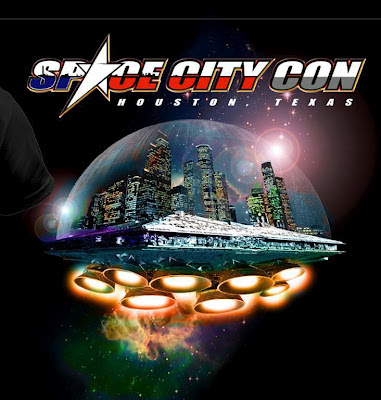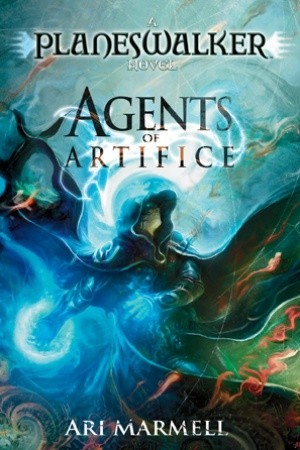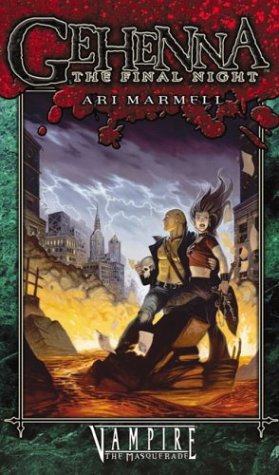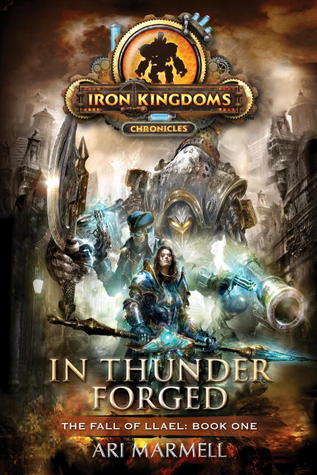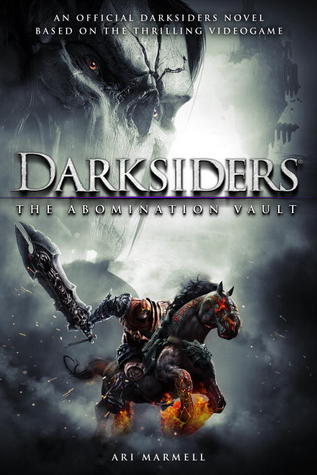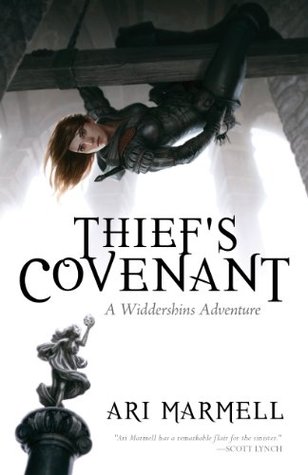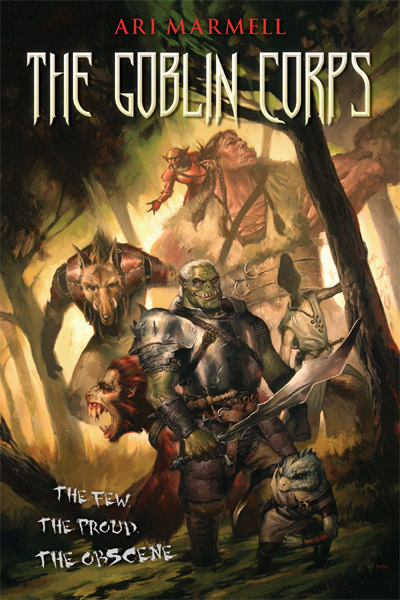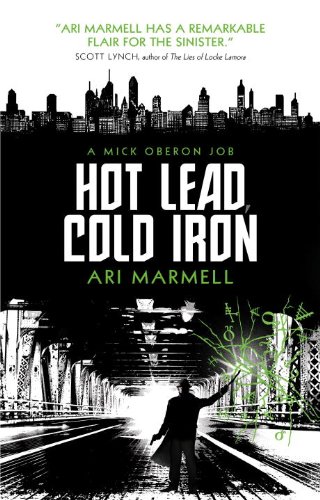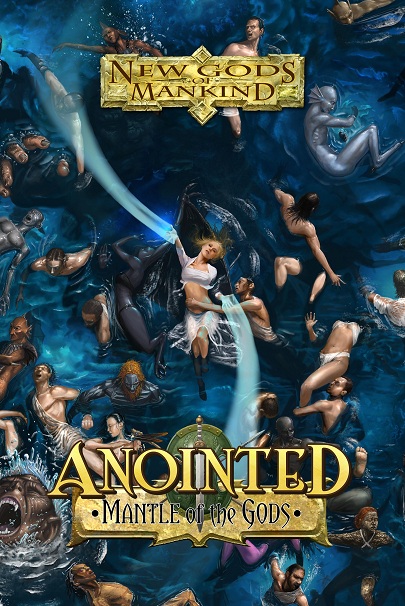Abstruse here, returning with another column of AICN Tabletop! First off, I would also like to take this moment to make an announcement. If you follow me on Twitter, you’ve already heard about my new project Gamer’s Tavern. While this website will have forums to discuss gaming and a blog where I will give my musings on gaming, from editorials to tips and tricks, but the main focus is my new podcast, YOU ALL MEET IN A TAVERN. My co-host Ross Watson (one of the designers of the previously mentioned ACCURSED as well as a designer with a resume that hits Fantasy Flight Games, Games Workshop, Wizards of the Coast, and Catalyst Game Labs) and I recorded a pilot episode where we introduced ourselves, and the first episode is out now with guests Bruce Cordell (game designer for almost 20 years on DUNGEONS & DRAGONS and now the lead designer for NUMENERA), John Kovalic (artist of MUNCHKIN, APPLES TO APPLES, and the comic strip DORK TOWER as well as designer of the party game ROFL!), and Torah Cottrill (former line editor for Wizards of the Coast I interview below). And no, Ain’t It Cool Tabletop isn’t going anywhere. This will be the sole forum for my news and reviews in the gaming industry and there will be no cross-posted content between the two sites. So please check us out! Now on to the column!
Space City Con was amazing and I had a wonderful time there and, as much as I’d like to gush over how much fun the convention is, I’ve got a lot of stuff to get through for you. As con season’s finally over, we’ll get back to more news and reviews starting next week. In the meantime, I’ve got some very interesting interviews that will give you some insight on how the nuts-and-bolts of the game industry from some people who have a lot of varied experience in the industry.
Miranda Horner has worked in the game industry for a very long time, with a pedigree that goes back to West End Games and TSR. She was formerly in R&D but at the time of the interview was Managing Editor for the online releases of DRAGON and DUNGEON magazine (though I’m not sure what her current position is since it was announced Saturday that both magazines are going on hiatus during the edition change). Here’s the interview:
Abstruse: Okay, I’m going to address the elephant in the room. You’re a woman.
Miranda Horner: Yes.
Abstruse: And you work in the game industry.
Miranda Horner: For a very long time.
Abstruse: That’s a big topic right now, sexism in gaming and in gaming culture. And... I’m trying to figure out a way to word the question, but I’m a guy so I don’t really know... is there anything you’d like to speak to about that? What it’s like to be a woman in that industry?
Miranda Horner: The people I work with are very professional and very supportive, so I actually don’t have any issues with them. And mostly at cons, I’ve not had as many problems as I’ve heard other people having. You hear about people being ignored when you’re trying out a game at E3 or like at Bioware, one of the writers there, she had a lot of issues. I’ve not experienced any of that. Either I’ve been lucky or I’m surrounded by a lot of good people or something like that. But I’ve never had any bad experiences with that, thankfully.
Abstruse: So how did you get into the industry?
Miranda Horner: Essentially, I wanted to work at TSR. When I was in college, I got an English degree so I could become an editor at TSR. Then I graduated and I was working at a bookstore full-time at that point. I contacted various publishing companies like West End Games and TSR to get some support for any of the in-store gaming sessions we were doing. They had a position open at West End Games for an editor. So I ended up working at West End Games as an editor for eight months, and about that time TSR was ramping up its editorial needs, so I interviewed with them and took a job with them. I originally wanted to be a fiction editor, but I ended being a game editor, which has been awesome.
Abstruse: What did you work on over with WEG? Because I know a lot of people, even with EDGE OF THE EMPIRE out, hold the West End Games STAR WARS d6 game in high esteem. Was that when you were there or before or after or...?
Miranda Horner: I was mostly involved with Masterbook and finishing off TORG at that time.
Abstruse: So then you moved over to TSR. What did you do over there?
Miranda Horner: I ended up on AD&D Core. My first thing there was THE SILVER KEY, a nice 32 page product to work on first to get a feel for the editorial process there. Then I jumped right into PLAYER’S OPTION: SPELLS & MAGIC. I was mainly on AD&D Core stuff for most of the time there, then I did some RAVENLOFT because I really love RAVENLOFT.
Abstruse: Who doesn’t?
Miranda Horner: Yeah. And then when Wizards of the Coast acquired TSR, I ended up getting shifted over to the DRAGONLANCE team and I spent a lot of time on DRAGONLANCE.
Abstruse: So that would’ve been around SAGA...5th Age...
Miranda Horner: Yeah, it was the SAGA rules system and 5th Age setting.
Abstruse: That was controversial at the time because it was a big change in the rules system. What did you think of the SAGA system versus the more straightforward, normal AD&D?
Miranda Horner: So what happened is that Skip and the Dragonlance team had already started working on the 5th Age stuff and the first box came out when I was on the AD&D Core, so I’m not as aware of what was going on at that time. I came in for Citadel of Light. I do remember that it did cause a kind of division amongst the player base, some people were like, “I don’t want to work with the new system” and some people really embraced it. Because it did have a different kind of aesthetic to it. Just like any edition type of thing, it did seem to split our player-base to a certain extent.
Abstruse: And Dragonlance is one of those systems, even moreso than probably any of the others, where...it’s why I always loved Dragonlance. It reminded me a lot of how FASA handled their settings. It was a living world. As the fiction advanced, the story advanced and the setting would change. Sometimes in small, subtle ways and sometimes in big, drastic ways. What was it like working on a product where you had to keep track of that. Was it more difficult or did it make it more fun?
Miranda Horner: It was a lot more fun! I really, really enjoyed that. They had an awesome team. We worked really well with the book department because we HAD to. We had to integrate all the novels into the game world and vice versa. We had Margaret and Tracy out for summits and we all sat down in the same room and hashed things out. It was just so much fun and so awesome and the creative energies and just the people involved. It was the best team I’ve ever worked on for RPGs.
Abstruse: So it was like, “We want to do this with the game world.” “Well, we want to do this with the fiction.” “Well, if you do that with the fiction, then I can do this with the game world!” And just sort of building off each other’s ideas?
Miranda Horner: Exactly so. It was very collaborative and the people we had involved. It was so much fun coming to work every day. We had full team meetings every week and, there was just so much energy and so much creativity. We were all sitting in the same area. It was easy to get up and talk to them about stuff.
Abstruse: The prairie dog cubicle thing where you pop your head up and say, “Hey, I’m about to kill this character off...is that going to screw something up?”
Miranda Horner: Issues like that were done in a group meeting. I mean if you’re going to do something large like that, then it’s good to have everyone’s buy-off and have a good sense of how that would impact the storyline going forward in a larger sense.
Abstruse: What was it like in those meetings, the story break meetings when everyone comes in?
Miranda Horner: So essentially they come in for a few days. We’d have an agenda figured out on what we were going to tackle. Then we would all sit down in a conference room with a white board all day. And Tracy {Hickman} would get up and do stuff on the board and Margaret {Weis} would interject things. We’d come to a consensus on how things would happen and we could come out of that with notes and go back over those the next day to make sure everyone’s on the same page still. It’s like for two or three days, every time it happened. The whole War of Souls thing, that’s how we figured all that out. Then they would come back within a couple of weeks or so with a fleshed-out outline for the novels.
Abstruse: I would really like to have seen those white board drawings. I think I might finally be able to figure out what was happening.
Miranda Horner: Well, time travel is tricky.
Abstruse: So aside from D&D Next, what games are you playing right now?
Miranda Horner: I’ve got a group right now running through TRAIL OF CTHULHU, the Gumshoe system. I’m running a NUMENERA game on Fridays right now. I really want to play this system and see what Monte’s been doing.
After the interview, Miranda asked me if I was interviewing Ari Marmell. I actually hadn’t been aware he was at the convention until I got there and saw a massive stack of 4e books at an autograph table. Miranda refused to let that stand and texted him repeatedly to come down to the lobby. She would NOT take no for an answer, so I got to go into an interview completely unprepared with no notes and no research beyond, “Oh, that’s how I know that name, it’s on the spine of like half the books on my D&D 4e shelf!” So here’s my impromptu interview with Ari Marmell.
Abstruse: So how’d you get into the industry?
Ari Marmell: I’d been trying to break into fiction for a while. This was way back in college and post-college, late 90s. That being the time of my career when I sucked. I wasn’t selling anything. I was working as a proofreader at an ad agency. I had a lot of free time. In fact, I’d written one of my novels at that desk. I figured, what the heck, that wasn’t going anywhere. I had an idea for a VAMPIRE: THE MASQUERADE supplement for a couple of years. And most SANE people would have just pitched it to them. I wrote the book and sent it in. Justin McKilly was the developer at the time. He couldn’t use the material, but he liked the writing and, as he put it, “You’ve proven you can finish a project.” We talked for a few months after that. Late 2000, he had somebody drop by with a project.
Abstruse: So basically, you did everything you weren’t supposed to do and succeeded.
Ari Marmell: Pretty much. In fact, when someone first asked me on a public forum how I did this, I answered. Justin followed that up with “Nobody else do that! I don’t have time for this!”
Abstruse: So I guess you just have to be that good to pull that off.
Ari Marmell: I’ll accept that. I didn’t know what I was doing, submitting to roleplaying companies. This was back in the day when most novel publishers still accepted unsolicited manuscripts, so I knew what those submission guidelines were like. I just took a shot at White Wolf.
Abstruse: What did you do at White Wolf?
Ari Marmell: Mostly freelancing on VAMPIRE THE MASQUERADE materials, a few books for other games here and there. Some DARK AGES stuff, some general WORLD OF DARKNESS stuff. Blood Sacrifice, Archons and Templars, Victorian Age VAMPIRE. So I did that for a few years. I also began working with some of the D20 companies, the D&D-compatible stuff back when that was a huge deal. That was about the time I both got into working with Wizards of the Coast and also doing my fiction again. White Wolf asked me to do the GEHENNA novel to end the VAMPIRE: THE MASQUERADE fiction line. I was then able to sort of parley that into tie-in fiction for Wizards of the Coast, which then got the attention of my agent who got me first non-tie-in fiction sale.
Abstruse: So you worked on a lot of licensed stuff. I believe Miranda said you worked on a MAGIC: THE GATHERING novel?
Ari Marmell: I did one MAGIC: THE GATHERING novel, I did a DARKSIDERS novel, we just published the first hardcopy tie-in novel to the WARMACHINE miniatures games.
Abstruse: What’s it like writing fiction for a licensed product that’s not necessarily strongly driven by the fiction. I’ve got to imagine there’s a lot of barriers. “You can’t do this because that would affect the game world too much.”
Ari Marmell: It can be a challenge. Especially if it’s a licensor who doesn’t know where those lines are until you run into them. With MAGIC, there was a lot of back-and-forth. The basic story was mine, but they had quite a few ideas of what they wanted in there. With DARKSIDERS, it was much more “Tell us what ideas you have that involve these characters and this world.” There were a few things I couldn’t do. I couldn’t do anything that would limit the designers for future games. The two games that are out so far involve two of the Horsemen of the Apocalypse. I wanted to name the horses for the other two. I couldn’t do that because it hasn’t introduced in the game yet. But they were pretty good about letting me add to the lore when it was something that was not going to tie the hands of anyone coming after us.
Abstruse: Like I said, I recognized your name from all the books on my bookshelf. I was running an undead campaign at the time and had gone through three different books getting the challenge rating, and “Oh, these zombies immobilize and these ghouls do more damage to immobilized creatures.” It wasn’t until I was at the table with my print-out of the stat blocks and I’m in the middle of describing the attack and realized this guy is actually immobilizing them by ripping the guts out of his stomach and throwing them to lasso around them and I’m like “Oh my god!! Wait, I need to back up a bit.”
Ari Marmell: I really enjoyed monster creation in 4th Edition. There are things I love about 4th and things I love about 3rd, I’m not the edition warrior. But monster design is one place I had a lot more fun as a designer than in 3rd. The monster creation system in 4th Edition was faster. It was less persnickety. You could balance things without making sure you added up 27 different numbers accurately.
Abstruse: So I take it you’re not working on D&D Next right now because that’s probably all internal.
Ari Marmell: That and I’m focused on my fiction right now. I’m not saying I won’t work on it, but Wizards hasn’t asked me and I haven’t asked them.
{At this point we talked about the fiction publishing industry for a good 5 minutes or so in a way that’s not really interesting unless you’ve worked in the industry, but we did start talking about cover choices and how most readers assume the author actually has a say in the matter when they almost never do, thus the infamous hat issue with DRESDEN FILES. - Abs}
Ari Marmell: I have had people that we {authors} are in charge of cover art, of release dates, of pricing. I see 1 star reviews on Amazon, “I didn’t read this book, but the author’s a dick because the ebook costs the same as the hardcover.”
Abstruse: You can get away with that if it’s independent or self-published, but if there’s a publishing company involved, the author has
Together: NO say.
Ari Marmell: Zero say. There are reasons a lot of people only review self-published. There are still good reasons not to, it’s whatever works for you. If anyone tells you that one or the other is better at any particular time, they have an agenda. I’m going to get lynched for saying that, but it’s true. Whether you’re die-hard self-publishing or die-hard traditional, there are always exceptions that go the other way. But that right there is the advantage to self-publishing. You don’t have the publisher setting prices for you.
Abstruse: And the downside is you have to do EVERYTHING. Or you have to pay out of pocket to hire someone to do something you can’t do. Which is why most self-published books have the world’s shittiest covers usually.
Ari Marmell: Which is why I’m about to launch a Kickstarter to fund a collection of my short stories, half reprints and half original stuff. And I’m doing a Kickstarter because I want it to be professional quality. I want to hire editors, I want to hire a cover artist. So we’ll see how that goes.
Abstruse: So do you still do any gaming at all?
Ari Marmell: I haven’t recently just because of circumstances. But I still consider myself a gamer. Between work and my schedule and my friends’ schedules, the chances just not been there.
Abstruse: It’s always a lot harder when stupid grown-up stuff gets in the way of what you should be doing.
Ari Marmell: It’s also the fact that I don’t really enjoy running games anymore. I used to prefer to do that to playing, but between the freelancing and the fiction writing, putting together a campaign feels like work. It’s a fun job, but it’s still a job.
Abstruse: It also seems to me that it sometimes sucks away your creative energy. You’re putting it all into this thing just for your friends when it could be going into the project you’re working on.
Ari Marmell: Exactly. I’ve had ideas where I’ve had to think – I hate to put it this way, but, do I want to waste this on a campaign. I hate sounding like that, but when you make a living on ideas, you have to think that way a little bit.
Abstruse: On the plus side, it’s not like it’s a one or the other thing either. Treat the roleplaying game as a beta test on the idea.
Ari Marmell: Yeah, I have done that with my novel THE GOBLIN CORP. It’s NOT a novelization of a D&D campaign because you can’t do that straight. It doesn’t work. But it’s a novelization of the same plot and same story as the campaign.
You can check out Ari’s fiction work by clicking on the images above. Since the interview, his Kickstarter has finished and met its goal. So it shouldn’t be too much longer before you can pick up his new fiction anthology. Also coming next May is a new fiction series starting with HOT LEAD, COLD IRON about an exiled Fae Lord who is working as a detective in 1930s Gangland Chicago.
Torah Cottrill actually showed up about halfway through my interview with Ari and was kind enough to patiently wait for me rather than rescheduling. She was also cosplaying as Mako Mori from PACIFIC RIM, but unfortunately the picture I took didn’t turn out due to some weird lighting from the hotel lobby.
Abstruse: How did you get involved in the game industry?
Torah Cottrill: When I was in high school, girls weren’t allowed to play D&D. I had friends who played a game every day at school. They snuck into the photo development lab and play D&D by flashlight. I could watch, but I could not play. So that was my introduction to D&D, a boy’s only game and you can’t do it. Flash forward many years, I’m a professional editor and I move to Seattle. And I heard of this company called Wizards of the Coast, which is just a very cool name but I don’t know anything about it. So I go through Craigslist every day looking for editing work. And there’s this really, really interesting editing position for Wizards of the Coast, which is a cool-sounding company. Then I looked them up, D&D, I remember this. And Magic. I had no idea what job they were interviewing me for. So I tried to learn the rules for Magic quickly, so I could talk about it like I knew what it was.
They sent me a very, very long editing test that had stat blocks in it. And I’d never seen a stat block before. Text I could do, stat blocks were a mystery to me. I must’ve done alright because they brought me in. And there was Kim Mohan {Long-time editor at TSR and Wizards of the Coast working on D&D who recently retired – Abs}. AMAZING STORIES!!! So I geeked out over Kim Mohan and then they did the interview. Much to my surprise, what I do professionally is what Kim Mohan does. And we were both taught in the same style. Originally, technical editing and copy editing was a journeyman’s profession. You didn’t learn it in school, there weren’t classes to do this. You had to be taught by someone, you had to be hired as a likely candidate and someone who knew what they were doing would teach you how to edit. Kim came up in that system and I came up in that system, so we did things the same way, we thought about things the same way. The whole first year I worked there, I couldn’t believe they gave me money.
Abstruse: And I can see how that would really help in games, coming from technical writing because of all the mechanics that are involved in games, as well as fiction and fluff and everything else.
Torah Cottrill: You know, when you strip away the “Oh my gosh, it’s really, really cool” part of editing for Wizards of the Coast, it is very detail oriented technical editing. Much moreso than editing just text or editing a website. This is really nitty-gritty. And there were, I have to be fair...the editor in charge of each section of the book was really the expert in getting the numbers right. So the designers had the concept, made everything coherent, the developers take a pass to make everything balanced, the editor took a look at it to make sure it hadn’t somehow gotten wonky in between, and as a last line, Kim or I would look at everything altogether and make sure that it all was cohesive. Because by then, it’s been through so many different hands. You know how that goes? Somebody’s fixed something and somebody’s fixed something else. I got a book once that someone added an extra chapter to and wrote “Art goes here” and never told the art director. So it got all the way to the end and there was no chapter art. But that’s what you have managing editors for, to make sure that’s fixed before it goes to press. It was a great job, I really enjoyed it. I worked with amazing people, they’re great people, every one of them.
Abstruse: So you didn’t play roleplaying games before working there, did you start gaming whenever you were working there?
Torah Cottrill: Yes. That’s sort of a requirement at Wizards. Pretty much everyone plays a pick-up game in one of the conference rooms once a week now, they’re doing a lot of playtesting, but even back then, I was in a number of pick-up games and I was in a campaign on the weekends and—
Abstruse: Whose campaign?
Torah Cottrill: Greg Bisland, it was fun.
Abstruse: So it wasn’t the elusive Chris Perkins game.
Torah Cottrill: No, there’s a waiting list for the Chris Perkins game. Chris Perkins has legendary handwriting.
Abstruse: I have seen the maps in the videos and it’s like...did you study drafting or something? But I was curious what it was like as a non-gamer and not part of the culture and then coming in and seeing what the game industry’s like.
Torah Cottrill: I became the canary in the coal mine for a lot of projects. I read the DARK SUN reboot because Michele {Carter} wanted to know if it made sense for someone who didn’t know the original. Does it work for you now? Anytime one of the editors had a question about whether this construction would make sense to someone just starting the game, that was me. So, it was fun being the resident noob.
Abstruse: So what was your impression of the industry?
Torah Cottrill: Game writers are often introverts, and there weren’t a lot of women working there. So it took a while to really know who all these people were. Once you’ve made it past the outer shell of introversion and met these people, they’re really wonderful and are a creative inspiration. You talk about people who are doing amazing projects all the time.
Abstruse: Okay, elephant in the room question. You are a woman, and you already said your first exposure to D&D was a sort of “No girls allowed” club. So, how was being a woman in the game industry...I’m trying to find a way to ask this, but I’m a guy so a lot of the stuff I don’t see unless it’s the really obvious stuff...so just game industry as a woman dealing with coming to conventions and dealing with the public and...
Torah Cottrill: I love conventions and I’ve never had a problem. I know that’s sort of been a topic lately. It hasn’t been my experience, but I’m not discounting that’s the case. Once I made it into the gaming circle, I don’t think I even noticed that I’m a woman in gaming and then I met a lot more women who have been gamers all their lives. And I feel kind of sad where I missed it. I had that moment where I could’ve been one of them and it took me so long!
Abstruse: Whenever you were telling me that story when you said “No girls allowed”, I just...{incoherent angry grumbling}
Torah Cottrill: The first thing I did when I got the job at Wizards was I emailed those three guys.
Abstruse: Oooh, and what was their reaction?
Torah Cottrill: “Oh my god, that’s so cool!” For a while, I was the most popular mom in middle school. But there’s a lot of work. There’s a deceptive amount of just technical sloggery to make a good idea turn into a book. The real layout challenge I had when I was there was GAMMA WORLD. The first GAMMA WORLD box set, the rulebook was a size no one had used before. No one knew what font we were going to use until a week before we went to press, so we didn’t know how many words would fit on the page. So they decided to go with the regular stat block format, which didn’t fit on that size page at all. My creative challenge was taking Bruce {Cordell}’s words and using as many as possible without removing too many for flavor. I’m very, very proud of that because I think it turned out very well. And I saved as many monsters as I could!
Abstruse: You came to the company right as 4th Edition was ramping up. And 4th Edition is very contentious in the gaming community, so—
Torah Cottrill: But see, I was not really part of the gaming community, so I didn’t know that. My first exposure to D&D was 4th Edition, so in my head now, that’s what D&D is. The thing is, if you just don’t read the boards, you’re fine. And I didn’t have “a name”, so nobody really cared what side of that I came down on. I didn’t feel embroiled in that, but I was certainly aware of its effect on people around me. There are some people who have more volatile personalities than others who would get really upset reading the boards. Don’t do it! Walk away now!
Abstruse: So you left Wizards of the Coast around...
Torah Cottrill: 2010.
Abstruse: Are you still working in the gaming industry?
Torah Cottrill: For a while, I worked for NCsoft on MMOs, so I worked on CITY OF HEROES. And that was astonishing for me and I had developed a love of game and storytelling, and I had never played an MMO. And that was a requirement for that job. If you’re going to write about these games, you have to play them.
Abstruse: “In order to do this job, you have to play a think you never want to do anything else that doesn’t involve the game.”
Torah Cottrill: “And here’s a very powerful Alienware computer to play it on!” It was fantastic!
Abstruse: So what games are you playing now?
Torah Cottrill: I play GUILD WARS. I have a Level 80 Charr Guardian that I have an 82% world completion on. And SKYRIM. Oh, SKYRIM, this is wonderful! I was playing and my kids saw it. Now, every morning when I wake up, there’s a kid playing SKYRIM. Every day when I get home, there’s a kid playing SKYRIM. So I’m not going to go back until they’ve finished it.
There was another game I got to get a good look at when I was at Space City Con, and it’s kind of two games with a shared setting. NEW GODS OF MANKIND and ANOITED: MANTLE OF THE GODS both take place in the same world with you taking on the roles of the Gods themselves in the former, while taking on the mantle of their demihuman avatars on Earth in the latter.
In NEW GODS OF MANKIND, each player taking on one member of a polytheistic pantheon of other gods. Each “turn” in the game is actually a season, and your strength comes from the number of followers you have. This game is very interesting because it’s very abstract, but still manages to have some cool tactical elements to the game. You have your domain of influence and different ways you can affect things (creating something takes more energy than just moving something around, for example, so a storm god would expend more energy creating a thunderstorm than simply diverting one from somewhere else). You can also make creative use of your spheres of influence in how you describe what you do (an earth deity would expend a lot of energy moving a river because that’s in a water-based power, but if you cause a rockslide in the mountains that acts as a dam for the river, you’re in business).
ANOINTED: MANTLE OF THE GODS is a bit more of a straightforward RPG as you take on the role of the avatar of one of the gods from NEW GODS OF MANKIND. So in NGOM you play as Zeus, while in ANOITED you play as Hercules. I’ll have a full review of ANOITED soon, but my quick analysis is that it’s something to look into. It’s got a lot going for it in terms of production value as this looks like an A-list title in terms print quality and art. And, since the two games are set in the same universe, you can do some interesting stuff if you’re creative enough as a GM (having campaigns of both games running concurrently with 4 sessions of ANOINTED then one session of NGOM that influence each other). The books for both games look just amazing, and I highly recommend you look into them if the idea of high-level mythological gameplay appeals to you.

There’s some really good Kickstarters out right now, and I can’t even begin to cover them all. Con season’s over, so everyone’s back home and getting ready to launch their new products. So I’m going to focus on a few that are ending soonest and get to the others next week.
Well, except for the big one. Reaper Miniatures is at it again, with Bones II. I can’t even begin to tell you how badass the last Reaper Kickstarter was and my biggest regret was not getting in on it. The miniatures look amazing, they’re high quality, and you get a FUCKTON of them. This thing funded in UNDER THREE MINUTES and they’re approaching half a million dollars. This thing runs until October 26, so GET IN OR REGRET IT! Oh, and the minis come unpainted...
ACCURSED is an official campaign setting for SAVAGE WORLDS from game company Melior Via that...well, they emailed me about this Kickstarter before it launched and my reaction is quoted on the Kickstarter page: “You secretly slipped RAVENLOFT some PCP.” I believe I also said, “This is what that VAN HELSING movie was trying to do only done right”, but that didn’t make it on their site. It’s the standard gothic horror influenced campaign setting you’ll be familiar with from RAVENLOFT, but it’s far more aggressive. You’re not just a band of random adventurers roaming the world full of evil, you’re one of a group of Chosen Ones battling the monsters lest you become monsters yourselves. At $10, you immediately get the current draft of ACCURSED and the final PDF version of the Player’s Guide. At $20, you get the entire campaign setting including GM information, while $30 gets you a hardcopy as well (shipping not included, so plan accordingly). This Kickstarter is running until October 13 and is funded.
GOLEM ARCANA is an incredibly ambitious project from Harebrained Schemes, the company that brought you SHADOWRUN RETURNS. Jordan Weisman, the company’s founder, is no stranger to trying to make miniature wargaming more accessible since he founded WizKids with their clicky-base miniature wargames like MAGE KNIGHT and HEROCLIX, taking a lot of the bookkeeping out of wargaming. WizKids may be under new management, but Weisman is at it again with GOLEM ARCANA, which looks to take miniature wargames into the 21st century. The miniatures are pre-painted but easy to customize or base and repaint. But the REAL secret is in RFID and Bluetooth technology. See, the concept behind the game is that each player has a Bluetooth enabled pen they can press against the base of any miniature and, on their Android, iOS, or Windows Mobile device, immediately see that unit’s stats. You tell the app where you want to move and it tells you if that’s a legal move or not. It handles almost all of the bookkeeping for you so you can focus on your strategy. And Harebrained Schemes has made this clear – this is not a preorder. If this Kickstarter doesn’t get funded, this game does NOT happen. And don’t fear traditionalist, there are still dice involved in this game and you can take into your own hands pretty much anything you don’t want automated. For $65, you can get the base game and for $110 you get an additional Codex plus any stretch goals unlocked. This Kickstarter is currently sitting at just under $327,000 of a $500,000 goal and only has until October 15 to run.
Finally, Tracy and Laura Hickman are also looking to revolutionize gaming with the SOJOURNER TALES BOARD GAME. This board game attempts to infuse elements of storytelling into the game using an e-reader, tablet, computer, smartphone, or just old-fashioned printed stories. Each game has a story start-up and you build the story as you advance through the hour-ish game for 2-6 players. You get the first edition of the game for $50, and this Kickstarter is funded and runs until October 10, so HURRY if you want in!
That’s it for this week. I’d like to once again thank Space City Con and everyone at the convention for their time and dedication in adverse circumstances, as well as and Miranda Horner, Ari Marmell, and Torah Cottrill for their time. The convention’s been such a success that they’re running two a year now and moved to an even larger venue, a lush resort in Galveston, TX, for Space City Con Winter on January 3-5 (a great way to escape the snow if you live up north). If you'd like me to take a look at your product or your Kickstarter, email me at theabstruseone@gmail.com!
I would also like to take this moment to make an announcement. If you follow me on Twitter, you’ve already heard about my new project Gamer’s Tavern. While this website will have forums to discuss gaming and a blog where I will give my musings on gaming, from editorials to tips and tricks, but the main focus is my new podcast, YOU ALL MEET IN A TAVERN. My co-host Ross Watson (one of the designers of the previously mentioned ACCURSED as well as a designer with a resume that hits Fantasy Flight Games, Games Workshop, Wizards of the Coast, and Catalyst Game Labs) and I recorded a pilot episode where we introduced ourselves, and the first episode is out now with guests Bruce Cordell (game designer for almost 20 years on DUNGEONS & DRAGONS and now the lead designer for NUMENERA), John Kovalic (artist of MUNCHKIN, APPLES TO APPLES, and the comic strip DORK TOWER as well as designer of the party game ROFL!), and Torah Cottrill (former line editor for Wizards of the Coast I interviewed above). And no, Ain’t It Cool Tabletop isn’t going anywhere. This will be the sole forum for my news and reviews in the gaming industry and there will be no cross-posted content between the two sites. So please check us out!

